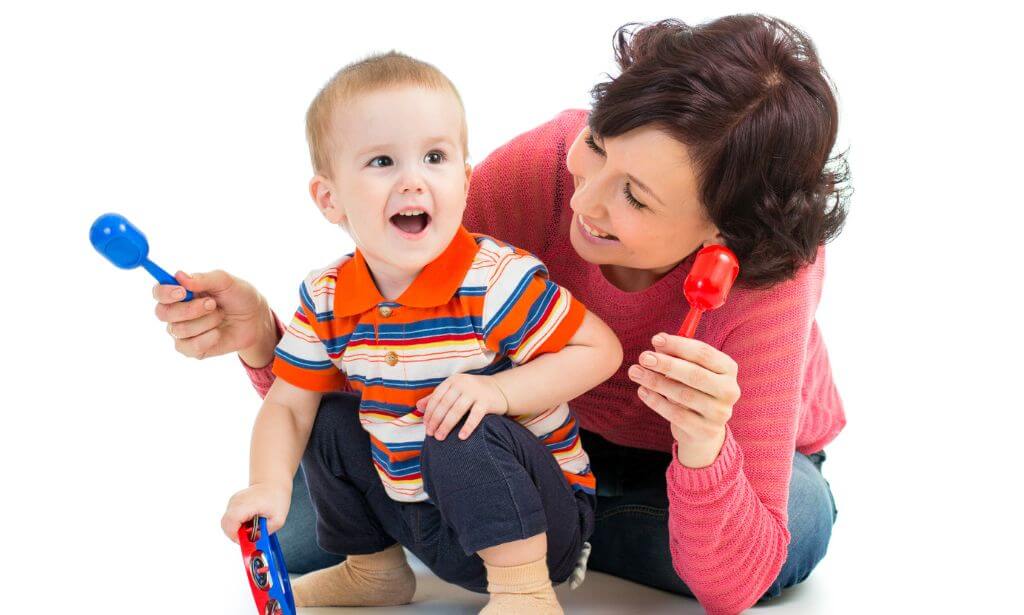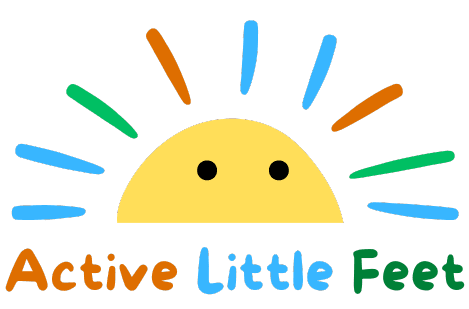One of my best memories while pregnant with my firstborn is going to church. At around six months, my baby would vigorously dance to the music in church, so much so that it was visible from outside, even with baggy maternity clothes on. Needless to say, people would stare at me and laugh, so I had to sit. When the music stopped, she would stop dancing and moving altogether, and I could finally catch a break.
Read: 34 Focus Activities for Kids to Help Boost Concentration
Today, we have learned through research that fetuses can sense rhythms early in pregnancy and distinguish various sounds later on. In fact, we now know that they respond to music and become calm or active depending on the type of music they hear. What’s more, babies prefer the music they listen to in utero once they are born.
This goes to show the impact musical experiences have on children from conception and it continues throughout childhood. It is why pediatricians and midwives encourage musical activities from birth, not just when kids are older or in preschool. According to them, these kinds of musical movements play a big part in the child’s physical, emotional and brain development.
But first…
What Are Music and Movement Activities?
In a nutshell, these are activities that combine music and physical movements. They include singing or listening to music, dancing, playing musical instruments or any movements related to music.
But because infants are too young to participate in some of these activities, your creativity must come to play here. The key is to choose age-appropriate music and movement activities that fit the interest and abilities of an infant. Luckily, kids are born musical, and they appreciate anything related to music, so it won’t be too hard to get some participation from them.

Benefits of Music and Movement Activities for Infants
Music and movement activities are fun for both you and the child. More importantly, music can help calm the child and soothe them. It’s also a fun way to bond with your child and entertain them as you have fun together.
But there is more to musical play than meets the eye. These are the developmental benefits pediatricians and researchers are talking about.
Motor Skills Development
Motor skills involve the body’s large muscles such as arms, legs, fingers and neck. As the child moves to music, they learn to move these muscles and learn what they are capable of. The physical awareness of their limbs and body parts leads to coordination, balance and independence. It’s also the basis for fine motor skills.
Language Development
Turns out, music is the most efficient way kids learn sounds, phonetics and words. They learn to listen and comprehend while listening to fun music more than any other medium because it’s enjoyable to them. The high-pitched singing style helps babies connect objects to words, recognize vowels and generally develop their language skills.
Cognitive Development
Research has shown that the brain responds to music in several different ways. First, the brain’s auditory centers learn to capture sounds; this is how the baby learns to hear and distinguish sounds.
Other brain parts responsible for emotions, memory and logic are also stimulated. In other words, music helps to develop brain neurons, connections and cognitive skills.
Speaking of cognitive development, check out our article on whether puzzles are good for kids
Social-Emotional Development
Last but not least, music helps with emotional and social development. As you sing to them, they get a sense of belonging and also calm down or feel happy.
Also, music provides a great pathway for social development. When new parents are singing to their young children, or having birthday parties and church groups where kids sing together, they demonstrate social skills and how to relate and have fun with others.

Simple Music and Movement Activities for Babies
1. Actively Listening to Music
As boring and mundane as this seems, sitting down to actively listen to music is essential for young babies. Remember this is how they used to do it in utero, so they are used to it. But before you do it, note there is a difference between having music play in the background and actively putting fun songs on a cd player nearby to listen.
For this, I recommend you hold your baby, sit down on a comfortable chair and turn on some lovely music on a cd player near you. You can start with something calming like classical music, jazz or whatever you listened to while pregnant.
Not sure what kind of music to play in early childhood? Let me introduce you to Jazz for Babies and Peter Tchaikovsky, Children’s Album, Op. 39, No. 1 Morning Prayerâ
This simple activity will help develop the child’s ability to focus, sharpen their musical skills as well as their language and emotional regulation skills.
2. Clapping
Did you know babies can’t clap on their own until about nine months? However, you can help them clap in the meantime or even demonstrate how to clap to music.
While you sit down to listen to your favorite music, start clapping your hands to the rhythm when the child watches you. You can also hold their hands or feet and clap them together. Not only will this help them enjoy and focus on the music more, but it also helps them feel the rhythm of the music and work on motor development. Make sure you do this with a smile or while singing along so the baby knows it’s fun.
3. Slow Dancing
You should avoid sudden and vigorous movements while your baby is under six months. This means no dancing to metal rock or loud music while holding the baby or jumping up and down. However, you can still slow dance by swaying side by side while standing, rocking back and forth while sitting or making bicycle motions with their feet while they lay down comfortably.
The idea is to make gentle movements and enjoy dancing with your little one in hand. This helps teach them about rhythm and pattern and also soothes them to sleep.
4. Play Music Instruments
This music activity applies in two ways. One, you can play a musical instrument for your baby like a presentation. Play them a piano, flute, violin, guitar or whatever instrument you like, as long as it’s not too loud.
The other part is to let the child play with different instruments or their musical toys. Something like a shaker or a rattle will help the child develop their creativity as well as their fine and gross motor skills. Expose them to different sounds, different types of music and instruments so they can learn what they like and appreciate music.
5. Watch Dance Moves on TV
When I say watch dance videos on TV, I don’t mean tuning in to MTV and rocking the latest Rihanna music. What I mean is children’s shows that sing nursery rhymes and other music activities. My kids grew up on the show Barney and Friends and learned a lot of her favorite songs from them. Infants may be too young for music lessons but such shows instill in them the importance of music, teach them musical notes, different movements and a lot of other fun things.
Babies will learn language and concentration and have a blast while doing so. For best results, participate in the music and movement games to make it more fun and active. If the show characters are clapping, clap and sing along or help the baby clap.
6. Sing for Your Baby
Studies now advise parents to start singing songs for their young kids during pregnancy. This helps with the bonding process, and voice recognition, among other benefits.
It’s also critical that you continue singing to the baby after birth. Don’t worry about your voice being bad- babies are biologically designed to love their mother’s voice. Take every opportunity to sing nursery rhymes for and with the baby before bed, while bathing, eating and playing. And if you can put some actions behind the singing, even better.
A simple song like Little Piggy or Twinkle Twinkle will be a good start because it’s repetitive and easy to follow.
7. Engage their Babble
You know how babies babble when they are happy? That’s their way of making music and communicating. You can engage with them by repeating what they are saying using a singing inflection. This encourages your baby to babble more and get the confidence to talk or sing.
As you can see, you can engage in many musical activities with your youngest children. Consider music as a gift that encourages learning from birth, creates a special bond between parent and child, and soothes your little one to sleep. And as they grow up, music and dancing will be one of the things you enjoy together as a family.




